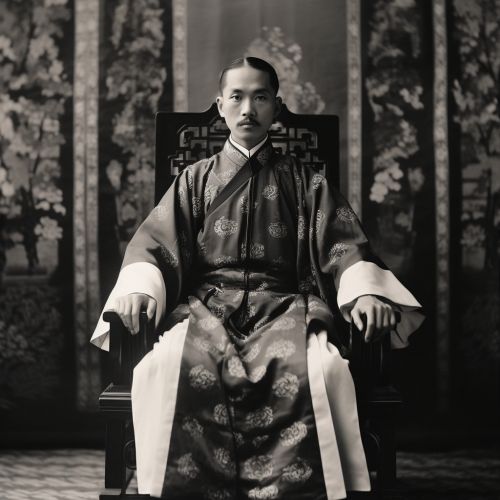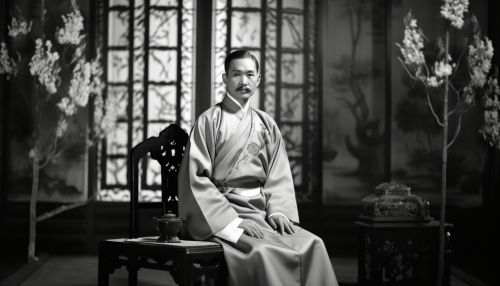Sun Yat-sen
Early Life
Sun Yat-sen was born on 12 November 1866 into a peasant family in the village of Cuiheng, Xiangshan (now Zhongshan) county in Guangdong province. His father, Sun Dacheng, was a farmer who died when Sun was only six years old. His mother, Madame Yang, was a devout Buddhist who raised Sun and his five siblings on her own.
Sun received his early education at a traditional Chinese school in his village. However, at the age of 13, he moved to Honolulu, Hawaii, where his elder brother Sun Mei was living. There, he attended the Iolani School and later, Oahu College. It was during this time that he first came into contact with Western ideas and was exposed to Christianity, which he would later convert to.
Political Awakening
Sun returned to China in 1883, where he continued his education at the Diocesan Home in Hong Kong. It was here that he first became aware of the political situation in China and the corruption and inefficiency of the Qing dynasty. He was deeply influenced by the writings of Yan Fu, a Chinese scholar who had translated works of Western philosophers and political thinkers into Chinese.
In 1892, Sun graduated from the Hong Kong College of Medicine, becoming one of the first students to do so. However, he soon gave up his medical practice to devote himself to the cause of political reform in China.
Revolutionary Activities
Sun Yat-sen's political career began in earnest in 1894 when he founded the Xingzhonghui (Revive China Society) in Honolulu. The society aimed to overthrow the Qing dynasty and establish a republic in China. Sun travelled extensively, visiting places like Japan, Europe, and America to gain support for his cause.
In 1905, Sun, along with other Chinese revolutionaries like Huang Xing and Song Jiaoren, founded the Tongmenghui (United League), a merger of many Chinese revolutionary groups. The Tongmenghui played a crucial role in the 1911 Wuchang Uprising, which led to the fall of the Qing dynasty.
Founding of the Republic
After the successful Wuchang Uprising, Sun was elected as the provisional President of the newly formed Republic of China on 1 January 1912. He was instrumental in the drafting of the Provisional Constitution of the Republic of China, which established a republican government structure.
However, his presidency was short-lived as he was forced to resign in February 1912 due to political pressure from Yuan Shikai, the powerful military general who had helped the revolutionaries during the Wuchang Uprising.
Later Life and Legacy
Despite stepping down from the presidency, Sun continued to be involved in Chinese politics. He served as the leader of the Kuomintang (Nationalist Party) and was a key figure in the Northern Expedition, a military campaign aimed at unifying China.
Sun Yat-sen died of liver cancer on 12 March 1925 in Beijing. His death was a great loss to the nation, and he is remembered as the "Father of the Nation" in the Republic of China (Taiwan) and the "Forerunner of the Democratic Revolution" in the People's Republic of China.


